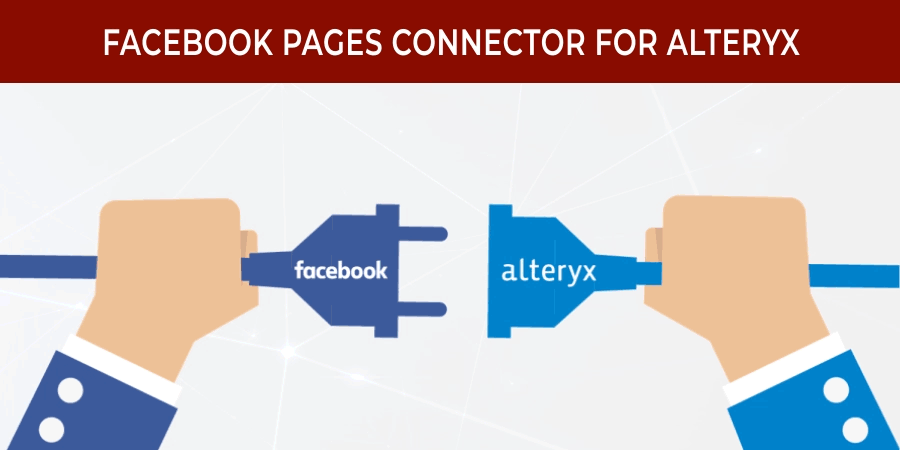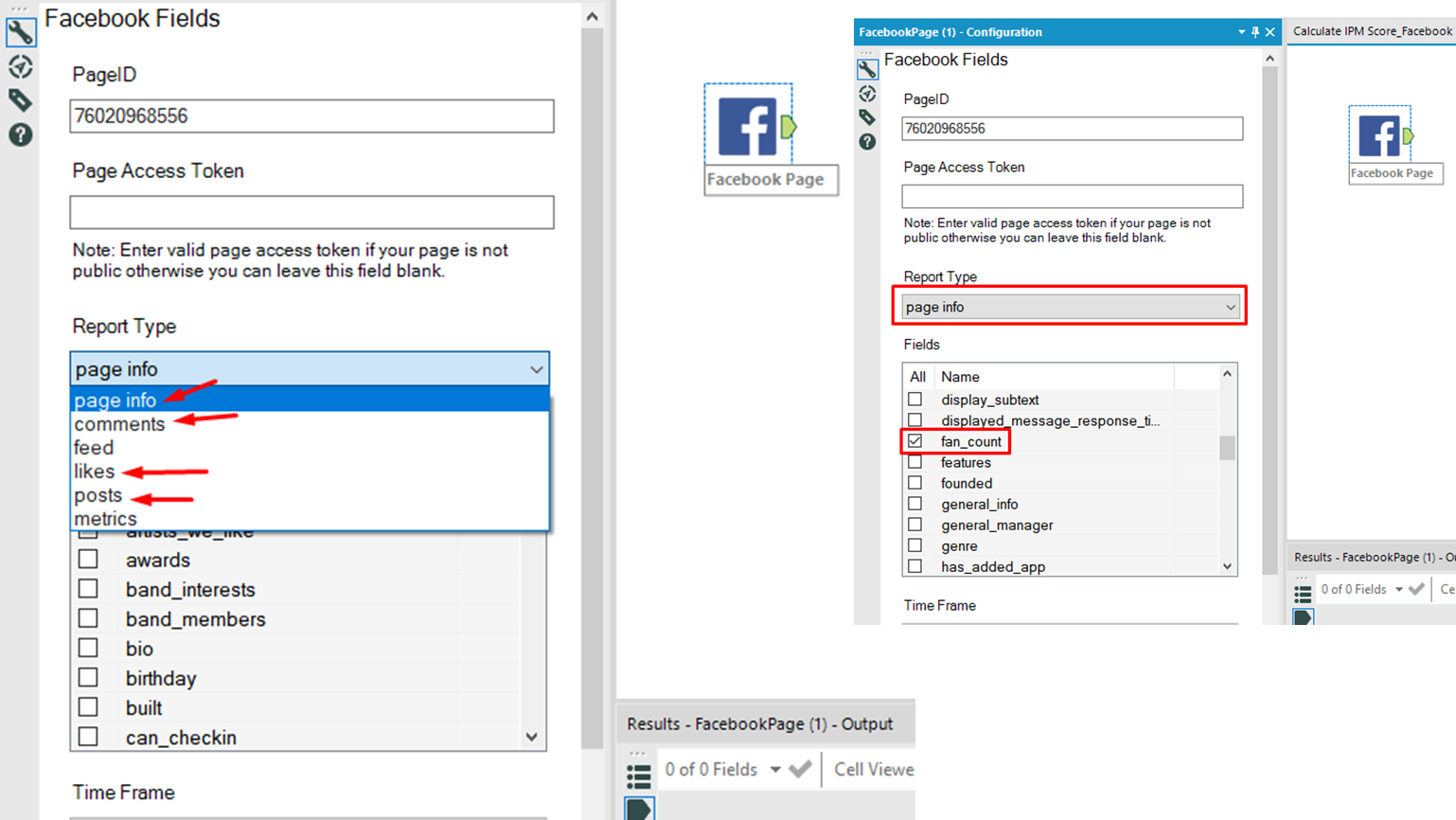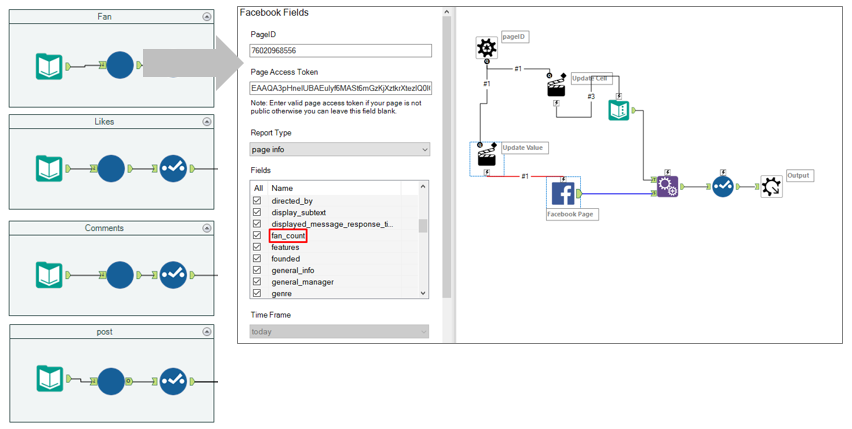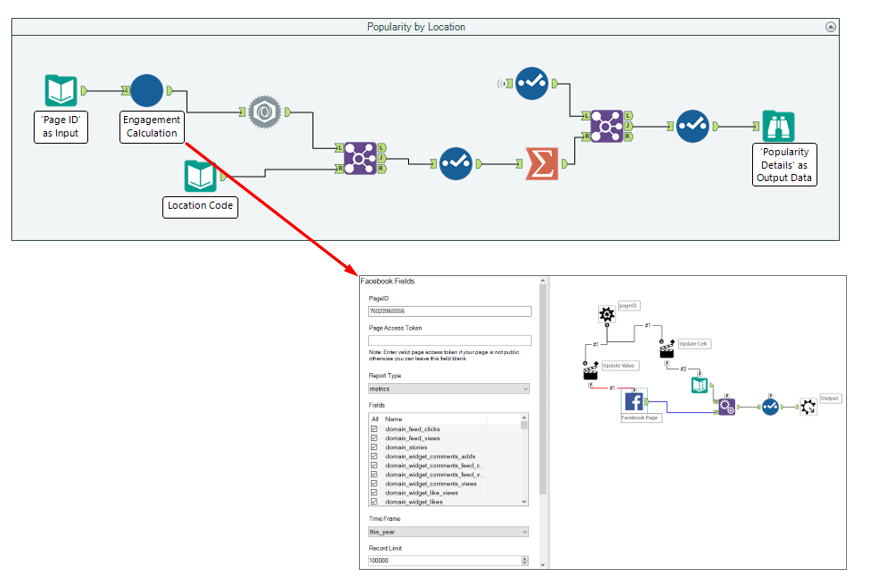Facebook Pages Connector for Alteryx
by Sonakshi Singla - 6 years ago in Analytics Connectors Facebook
Accessed by over 1000 million users everyday, Facebook opens a world of valuable and delightful insights for data scientists and analysts. Its content is spread in different forms and consists of a wide range of elements like posts, comments and media. The collective presentation of the aforementioned factors allow the businesses to derive the most valuable customer information and assess market behavior and demand based on the existing feedback. Having this beneficial data at your fingertips can add great value to your business’ decision making process and analysis.

Keeping track of the movement on your page, pattern of page engagements and visitor behavior is what helps build the correct page strategy to ensure desired reach.
Implementing the above would require shifting data into Alteryx and thereafter processing it into valuable reports. This is where you can make use of our Facebook pages connector, this will fetch data into Alteryx smoothly without any hassle.
Any Facebook user can login with simple account API credentials in Alteryx to get the desired data. This connector works exactly like any other native connector provided by Alteryx.
Let’s see how this works!
Facebook users can track the impact of their page content and identify the content that drives people back to the page. A simple metric called the ‘IPM Score’ is an algorithm that helps a Facebook Page admin calculate the engagement score of their page, posts, content etc. IPM is an indicator of the success of a Facebook Page. An IPM of 4 is considered average and below 2 suggests that the page is not performing well.
Below is a use case illustrating how to use the Grazitti Facebook pages connector to:
- Calculate the IPM score for Facebook Page(s)
- Calculate Popularity of Page by Location
Calculating the IPM Score for Facebook Page(s)
Facebook IPM score is based on page activities like page likes, shares, comments, and fans in a given time frame and the following data objects available on Facebook Pages (with the respective data fields to be used for calculation) are considered:
- Page Info – Fan Count
- Likes – ID (IDs of those who liked)
- Comments – ID (IDs of those who commented on the Page)
- Post – IDs (IDs of those who commented on the Post)
Since the data available is on four different objects, four different selections to fetch data for each object will be used in one workflow to derive the desired reports to calculate the IPM score.
The objects can be selected from the drop-down and then fields can be selected with the help of checkboxes as shown below.


Calculate Popularity of Page by Location
The popularity of any page largely depends on the number of likes and fans at diversified locations. With over 1.25 billion users, Facebook is the powerhouse of social media engagement. It encourages like-minded interactions on the page which further enhances brand loyalty.
For instance, let’s say a business functions at multiple locations across the globe and uses Facebook for its social media outreach. The page popularity calculation function offered by the Grazitti connector will enable cross-validation of the user activity counts at each location. It will help connect, track, and manage user interactions across regions for detailed break up of response from each region.
Shown below is the snapshot of how this function works within the connector

Subscribe
Did you like our blog? Subscribe to receive more awesome posts right into your inbox.
Recent Posts
Alteryx’s Generative AI: Your Pathway to Smarter Data Analytics Workflows & Insights
Integrate Your SAP S/4 HANA Database With Grazitti’s Custom Alteryx Connectors
Integrate Qualtrics & Alteryx with Grazitti’s Custom Connectors
Integrate Multiple Data Points in Alteryx With Grazitti’s Custom Connectors
Alteryx Introduces Analytic Process Automation (APA) Platform




